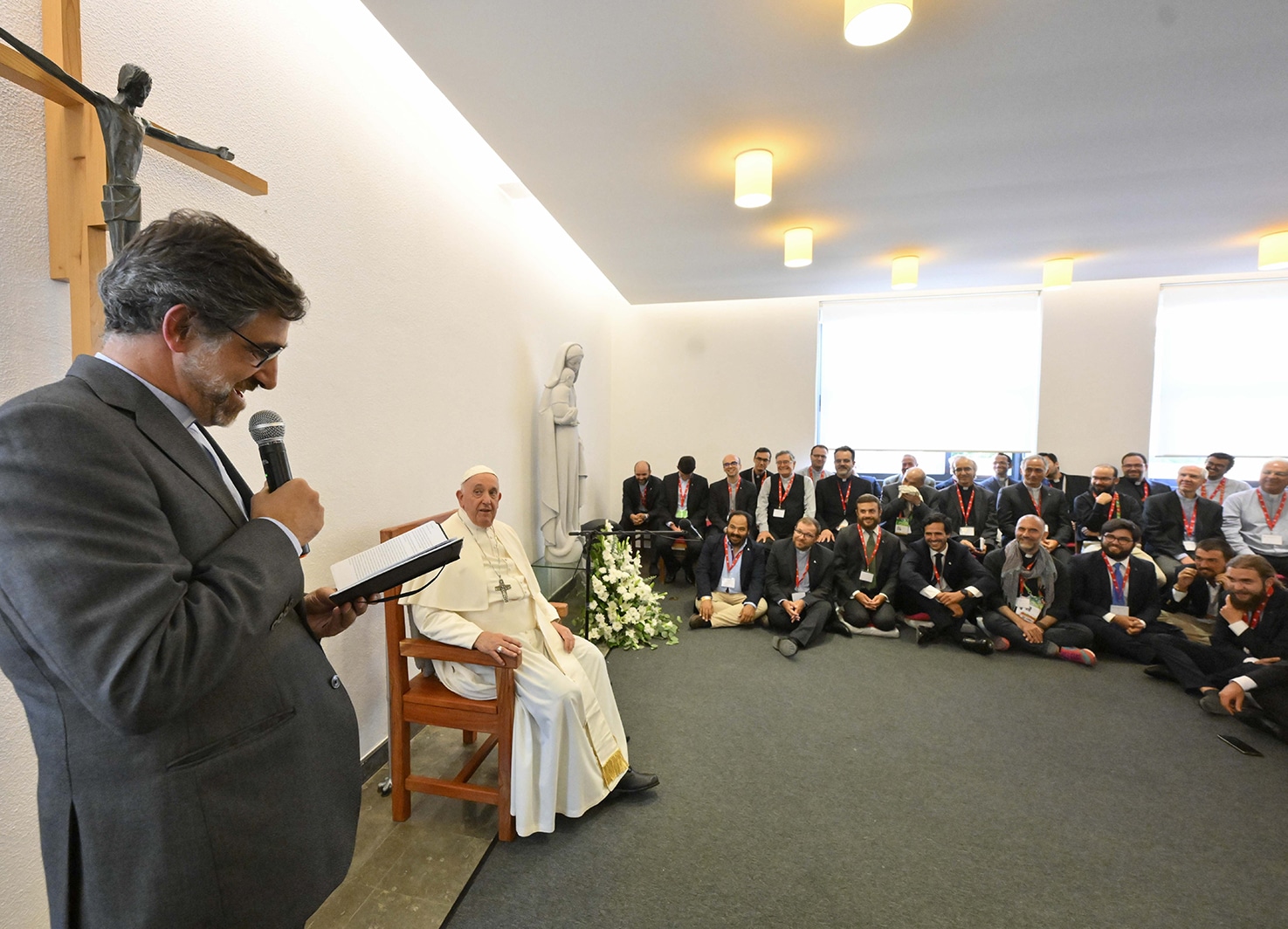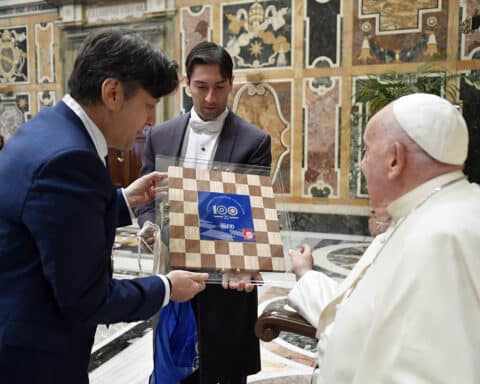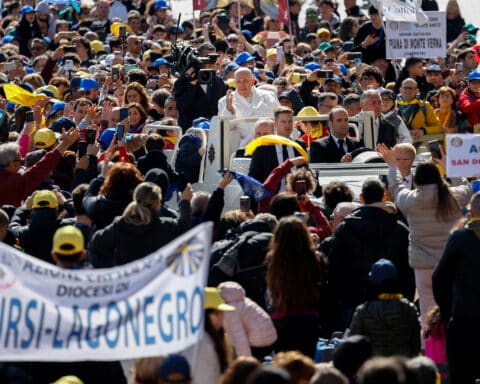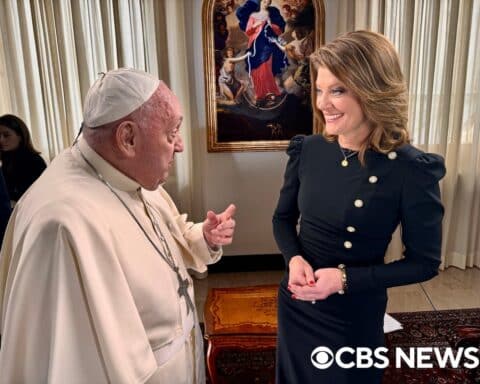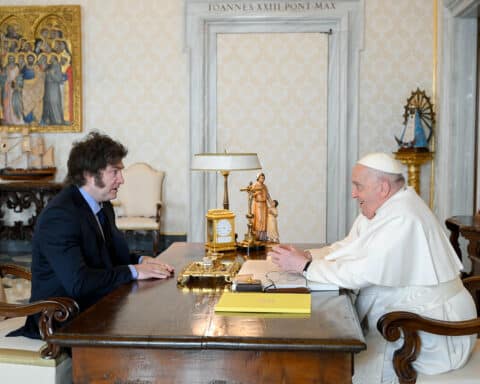In Lisbon for World Youth Day, Pope Francis met informally with Portuguese Jesuits. The discussion has been widely reported.
He did not raise the topic of Catholicism in this country, but he heard, and responded to, a Portuguese Jesuit’s impressions formed after living for a while in the United States — views, frankly, not unusual among those outside this country who observe American Catholicism.
Too often the observation is that many Catholics in the United States profess devotion but follow their own line. The pope likened the process to pursuing an “ideology” rather than expressed Catholic teaching.
To be fair, and honest, picking and choosing religious nations are hardly new, or unique to this country, but disunity, or timidity, among Catholic Americans is real. Considering their great advantages and potential, it is sad. American Catholics could, and should, work miracles.
Sin is sin
This is frequent. Catholics insist upon their loyalty to the Church but ignore, or quarrel with, its position on many matters — immigration, questions of intimacy, international relations, and economic issues, such as the rights of workers to organize in unions and to bargain collectively for just wages, decent working conditions, health care, and so on, all clearly mentioned in official Church doctrine.
Human life always is precious, from conception throughout life, however long, complicated or “productive,” to natural death.
Abortion is a sin. Catholics in many instances oppose abortion on demand, insisting that abortion is a morally reprehensible destruction of human life, yet some of these same people accept and defend capital punishment, although the Church teaches that capital punishment is, as the pope said, a sin.
Often, to justify approval of the death penalty, these Catholics declare that abortion is uniquely evil. Conditions are different. Abortion indeed is gravely sinful, but this does not, therefore, reduce wrong in other things or say that Catholics must condemn abortion but being silent, or dissenting, in other cases is fine.
Human life can be insulted in ways other than killing. African-Americans nurse deep, tormenting memories of past, abundantly verified persecution, and they earnestly believe, from present experience, that the end has not yet come. Many other Americans fail to see this.
U.S. Church history
The Church, its system of leadership, its process of teaching, and its teachings are the Lord’s gifts to us, to help us to live better and to better the world. Gifts also are the wish to understand people where they are.
Often, Pope Francis promotes inclusiveness and openness in the Church. As the parables (Mt 22:1-14, Lk 14:15-24) urge, go to the highways and byways, inviting even those dealing with admittedly difficult moral situations. Help all to find strength, enlightenment, guidance, peace, hope and redemption.
In Church history, certain people were read out of the body. Nothing good resulted. Once, any Catholic in this country receiving a civil divorce was, by that fact, without a Church declaration of nullity, excommunicated, no excuses — not abandonment, infidelity, abuse, nothing.
Church authorities applied this policy to impede divorces among Catholics. Eventually, they ended this harsh practice, realizing that it hardly reduced the number of divorces among Catholics. It merely drove people away from the Church, bitter, angry and hopeless in extraordinarily painful moments in their lives.
Some U.S. dioceses excommunicated parents who did not enroll their children in Catholic schools if such schools were available. The inability to pay tuition meant nothing. Parents were denied the sacraments, even a Catholic burial if they died. Children were humiliated. Children did not go to Catholic schools. Parents left the Church, furious and heartbroken, taking the children with them.
Disgracefully, until living memory, many dioceses and religious communities refused to accept African Americans as seminarians or postulants. The spread of the Gospel, and many good souls, suffered.
To understand the papal comments in Lisbon, think about the full picture and dream of the wonderful consequences if all who proclaim the Lord came together.

